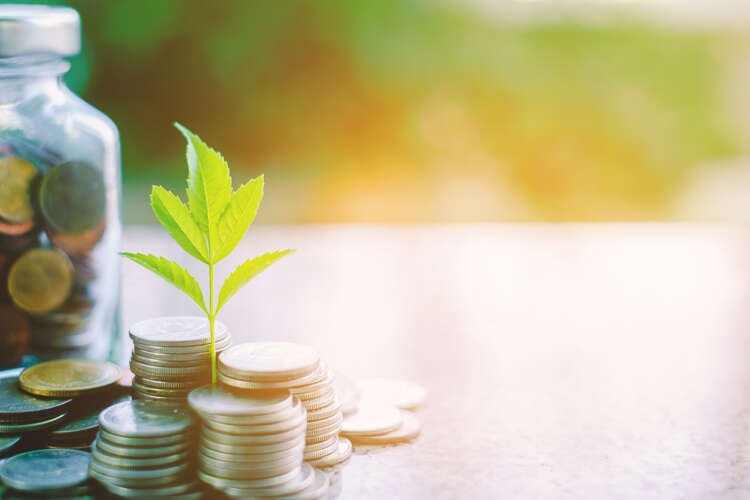Why financial institutions need to prioritise sustainability in financial services


By Anna Krotova, Director of Sustainability at Mambu
In recent years, sustainability gained a prominent spot on the agenda of capital market regulators. This led to a wave of change in the financial industry and rapidly shifted the level of attention and accountability of financial institutions for environmental, social, and corporate governance (ESG) topics.
Consecutively, the level of knowledge and awareness about the sustainability transition among society has risen too. Most recently, the ongoing energy markets volatility plus a wave of extreme weather events in Europe have all contributed to rising consumer demand for sustainability-aligned products and services.
This is heavily driven by Gen-Z and millennials, with nearly a third of millennials increasingly seeking out ways to change their behaviour in favour of greener choices – followed by just under a quarter across Baby Boomers and Generation X.
Banks have a role to play in meeting the changing attitudes to sustainability if they are to retain customers and expand their market share. Mambu’s recent report ‘Is the grass greener on the sustainable side?’ looks into how financial institutions can respond.
What consumers want to see from their financial institutions
Consumers are a critical stakeholder in informing the bank’s products and services development as they can deliver valuable insights about their needs, behaviours and lifestyles.
Consumers are making it evident that they are both looking for more sustainable services from their bank, as well as greater transparency about the bank’s activities and overall commitment to sustainability. More than two-thirds (67%) would like their bank or financial institution to become more sustainable in the future. Our recent The financial tribes you need to know report highlighted a further 58% of global consumers are willing to pay a premium for financial services that help the environment and local communities – a new development compared to, say, 5 years ago.
What factors inspired the shift in the conscious consumer?
We are at a point where we are starting to see and feel the effects of climate change, yet there’s still a very short window to reverse our course. The level of awareness of climate change has grown even among the audiences that historically have not been concerned with this topic. Greater accessibility and availability of technology have also brought us closer to recognizing the impacts of our activity, like the impact of our shopping. You don’t need to be an environmental activist or scholar anymore to know and care about these issues because they are becoming so present.
As the result, the number of consumers who wish to have a positive impact on the environment and society is rising rapidly and one way to do so is through your purchasing power. In fact, 59% of global consumers believe green banking will become mainstream in the future, with nearly half (48%) stating that access to green financial services has become more important to them in the last five years.
How can financial services adapt?
Consumers are becoming more critical, too, which is a positive development in helping hold the banks accountable. (67%) of global consumers state that they believe their current bank is guilty of greenwashing. Deloitte found that nearly one in two consumers either do not know what commitments businesses have made or they simply do not trust businesses on their climate change and sustainability claims. Clearly, failure to communicate accurately or act on said promises and commitments will quickly render any public statements as greenwashing and lead to loss of consumer trust.
Consumers are keen to have banks support them in making greener financial decisions as nearly half (49%) of consumers say they would consider switching to a provider with a stronger commitment to sustainability. Banks have an interesting opportunity ahead of them to co-create together with their consumers and involve them in product development.
The future of sustainability in financial services
Financial institutions aligning themselves with composable banking platforms like Mambu that can integrate services to meet the changing expectations of consumers is vital. Institutions need to be aware of consumer needs and learn how to adapt to the ongoing trends shifting the financial landscape.
Banks need to decide how they will respond to these expectations and the role they will play in the sustainability transition – which in turn will define how prepared they are to Their response will define how well they are prepared to meet current and future regulatory expectations, help strengthen public trust, and open doors for significant growth opportunities.
Read more in the complete report here: Is the grass greener on the sustainable side?
Sustainability refers to the ability to maintain certain processes or states indefinitely. In finance, it often involves practices that do not deplete resources or harm ecological systems.
ESG refers to the three central factors in measuring the sustainability and societal impact of an investment in a company or business.
Green banking is a banking practice that promotes environmental sustainability by offering financial products and services that support eco-friendly initiatives.
Consumer demand refers to the desire of consumers to purchase goods and services at given prices, influenced by factors like preferences, income, and economic conditions.
Transparency in banking refers to the openness and clarity with which banks communicate their practices, policies, and financial information to consumers.
Explore more articles in the Finance category
